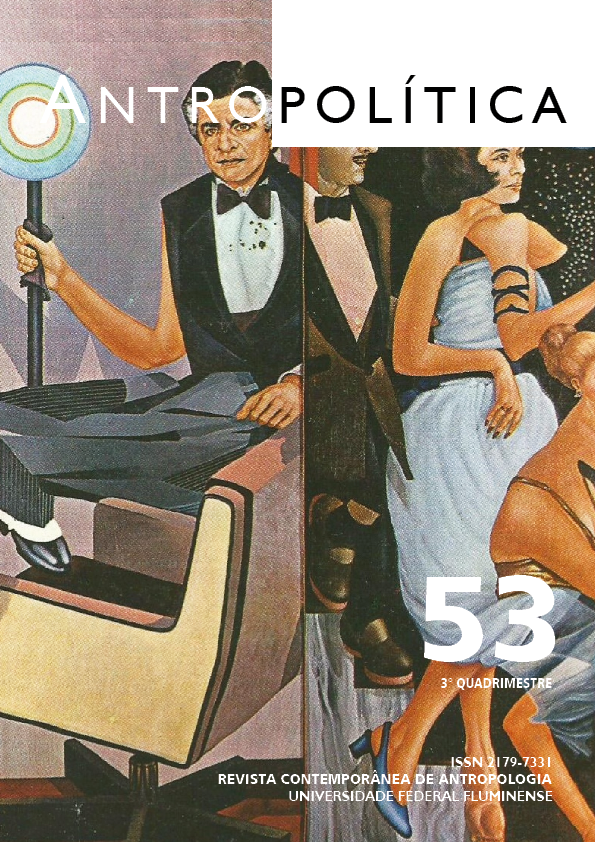Olhai para “os ricos do campo”: o lugar das elites e classes dominantes nos Estudos Rurais do Brasil
DOI:
https://doi.org/10.22409/antropolitica2021.i53.a50104Palavras-chave:
Elites, Classes dominantes, Estudos rurais, Ricos do campoResumo
Os Estudos Rurais são uma rede de cientistas sociais e de áreas afins que pesquisam temas no mundo rural brasileiro: da concentração da terra e recursos hídricos, conflitos entre populações locais e projetos de impactos socioambientais até políticas públicas voltadas para o meio rural. Os Estudos Rurais têm espaço em congressos nacionais e internacionais, além de parcerias e intercâmbios entre departamentos de universidades, ONGs e movimentos sociais. Neste artigo, proponho um debate sobre uma zona difusa dentro dessa consolidação de pesquisas dos Estudos Rurais: o tema das elites e classes dominantes e a construção de agendas de pesquisa acerca dos latifundiários, ruralistas, estancieiros, empresários rurais, pecuaristas, usineiros dentre outros. Para tanto, utilizo o seguinte roteiro: primeiro faço uma revisão dos debates acerca do termo “latifúndio” em teses clássicas do mundo rural; depois analiso a forma como os clássicos das ciências sociais no Brasil (1930-1960) abordaram a elite e o mundo rural. Aqui, também, a revisão é direcionada para as novas gerações de clássicos dos Estudos Rurais (de 1970 até o início do século XXI) e seus temas: pesquisas sobre a “perversa aliança” entre a grande propriedade e a modernização capitalista rural; temas dos setores patronais ruralistas do agronegócio e, por fim, etnografias feitas na zona da mata canavieira nordestina que alcançou o mundo das elites rurais. Revisando essas gerações de clássicos, proponho construir a categoria “ricos do campo” para firmar uma agenda de pesquisa atualizada sobre elites e classes dominantes nos Estudos Rurais.
Downloads
Publicado
Edição
Seção
Licença
Copyright (c) 2021 Valdênio Freitas Meneses (UFCG)

Este trabalho está licenciado sob uma licença Creative Commons Attribution 4.0 International License.
O conteúdo da revista Antropolítica, em sua totalidade, está licenciado sob uma Licença Creative Commons de atribuição CC-BY (http://creativecommons.org/licenses/by/4.0/deed.pt).
De acordo com a licença os seguintes direitos são concedidos:
- Compartilhar – copiar e redistribuir o material em qualquer suporte ou formato;
- Adaptar – remixar, transformar, e criar a partir do material para qualquer fim, mesmo que comercial;
- O licenciante não pode revogar estes direitos desde que você respeite os termos da licença.
De acordo com os termos seguintes:
- Atribuição – Você deve informar o crédito adequado, fornecer um link para a licença e indicar se alterações foram feitas. Você deve fazê-lo em qualquer maneira razoável, mas de modo algo que sugira que o licenciante o apoia ou aprova seu uso;
- Sem restrições adicionais — Você não pode aplicar termos jurídicos ou medidas de caráter tecnológico que restrinjam legalmente outros de fazerem algo que a licença permita.


